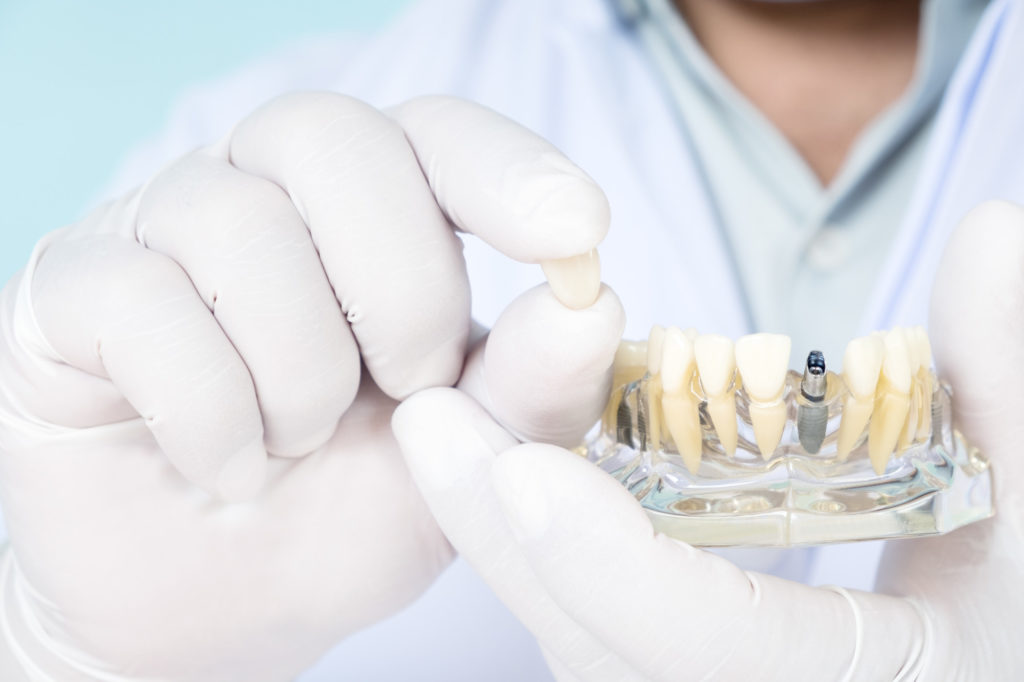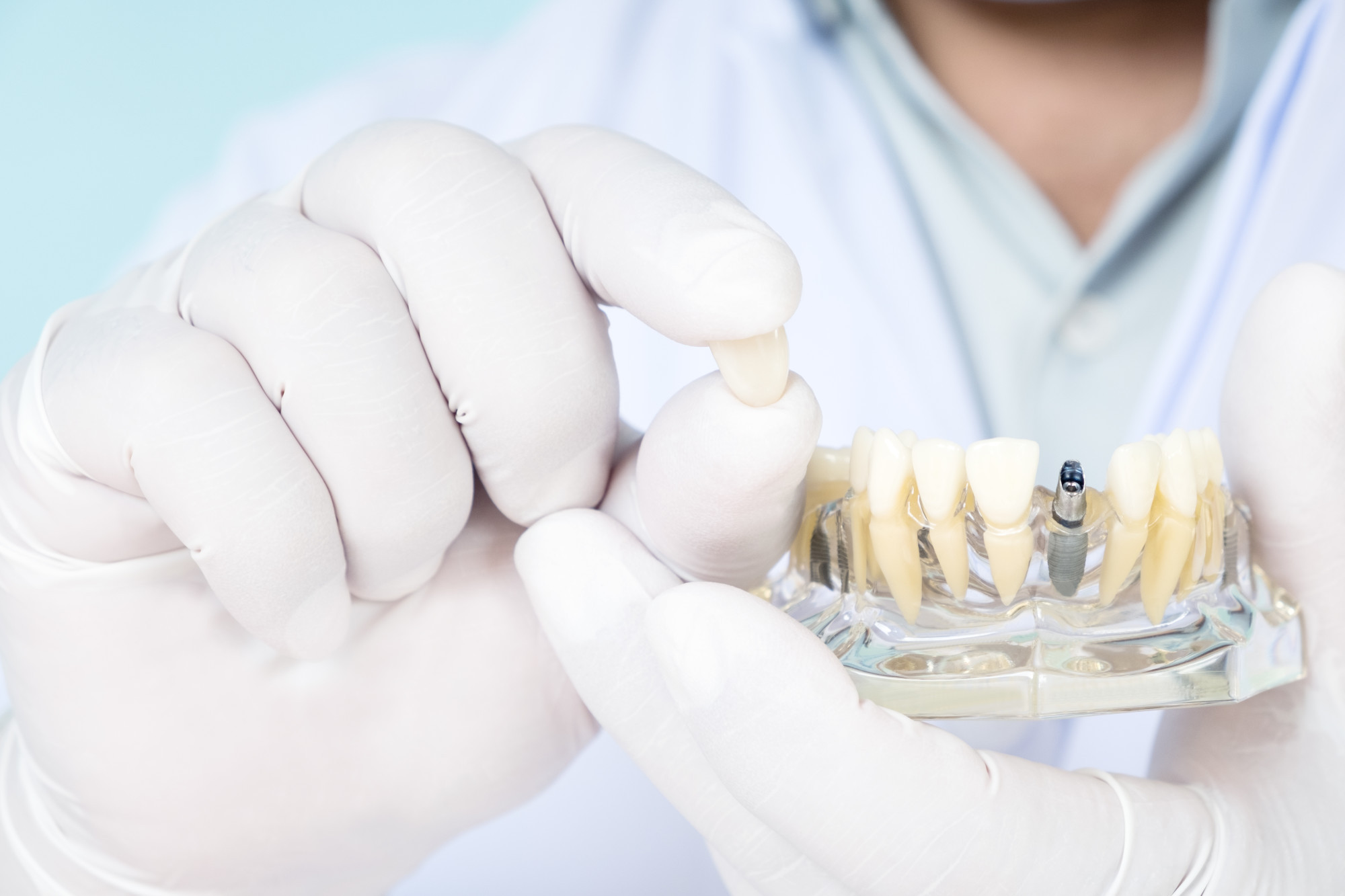
About 17% of adults over the age of 65 have lost all of their natural teeth. Over a quarter of adults over the age of 65 have 8 or fewer teeth. If you've experienced tooth loss, you're not alone. But what can you do about your missing teeth? You might be thinking that traditional dentures are the best option, but this might not be the case. We're here to talk all about implant-supported dentures as a potential alternative.
Read on for a brief implant-supported dentures guide.
What Are Implant-Supported Dentures?
Implant-supported dentures are the perfect blend of traditional dentures and dental implants. They're a great solution for anyone who is missing a large number of teeth (or even all of their teeth).
Most people, when they lose their teeth, opt for traditional removable dentures. While this is a tried-and-true solution that works, it's not the best one. Traditional dentures can be uncomfortable, difficult to speak with, and even difficult to eat with.
They're also expensive despite the fact that you will need to replace them over time.
Implant-supported dentures, however, are different. They use the technology of standard dental implants to create a long-term solution.
Typical dental implants are individual pieces that screw into the patient's jaw. In other words, each implant can replace one tooth.
Implant-supported dentures use fewer actual implant anchors but hold many artificial teeth. It's a quicker and easier way to restore a smile without the discomfort of dentures.
What Does the Process of Getting Implant-Supported Dentures Look Like?
The idea of getting implant-supported dentures might seem scary, but it's a fairly straightforward method of teeth replacement.
During the initial consultation, your dentist or oral surgeon will assess your oral health and take a full medical history. While most people are good candidates for implant-supported dentures, there are some conditions that may disqualify you (at least short-term).
The dentist will discuss all of the details of the procedure to make sure that you're committed to it. If you are, they'll take impressions and x-rays to start preparing.
At the next appointment, the dentist or oral surgeon will place the actual metal implants. These are metal anchors that affix to the patient's jawbone to support the dentures.
After several weeks of healing, the patient will return to the dentist. The dentist will expose the upper parts of the implants and place caps over them so the gums don't heal over top.
Once the gums have healed around the implants, the dentist will place the dentures. Implant-supported dentures, unless they're fixed dentures, are removable so the dentist will teach the patient how to remove them on their own.
What Are the Benefits of Implant-Supported Dentures?
So why would you choose implant-supported dentures over standard dentures, or even over your natural smile and missing teeth? There are a few reasons that implant-supported dentures have gotten so popular.
Here are a few of the top benefits of implant-supported dentures.
Jaw Protection
When you lose teeth, your jawbone can deteriorate over time. This is due to bone resorption. When you have a full mouth of healthy teeth, those teeth are actually supporting your jaw.
This is why you'll notice that some people who are missing many teeth have a "sunken-in" appearance to their faces.
When you wear dentures, you fix the physical appearance of missing teeth, but there's nothing to anchor the fake teeth to your jaw. In other words, there's nothing protecting your jaw from bone resorption.
Dental implants and implant-supported dentures solve this problem. The metal implants function like real teeth to support your jaw.
They Look and Feel Natural
Normal dentures can look natural when they're in place, but the second they shift around, they look "off." That shifting can also cause discomfort, make it difficult to talk, and make it difficult to eat.
Implant-supported dentures don't have this problem.
Once the dentures are in place, they look and feel natural (after a brief healing and adjustment process). No one will know that you're wearing dentures and you may even forget them yourself.
Eating and speaking will feel normal. Your dentures won't shift or pinch your gums. You can even brush your teeth as you normally would if they were real.
They're Long-Lasting
It's true that traditional removable dentures are more affordable than implant-supported dentures, but part of the reason is that they're not very long-lasting. Many people have to replace their dentures within about five years of getting them, so the costs add up.
Implant-supported dentures are expensive, but they're a permanent solution as long as you take care of them.
Better Overall Quality of Life
At the end of the day, implant-supported dentures will improve your quality of life if you have missing teeth.
Having too many missing teeth makes it difficult to eat and speak. Missing teeth may also damage your self-esteem. While standard dentures help, they're not the best solution.
Implant-supported dentures will boost your confidence and help you maintain better oral health.
Are Implant-Supported Dentures Right for You?
Implant-supported dentures are a perfect solution for anyone who's missing their teeth and is ready for a change. These dentures won't shift or pinch. They look and feel natural enough that no one will know that you have them.
You deserve a smile that you're proud of. Implant dentistry can give you that smile back.
At Seattle Specialty Dentistry, we want to give you that superstar smile. Request an Appointment today for a complimentary consultation.

